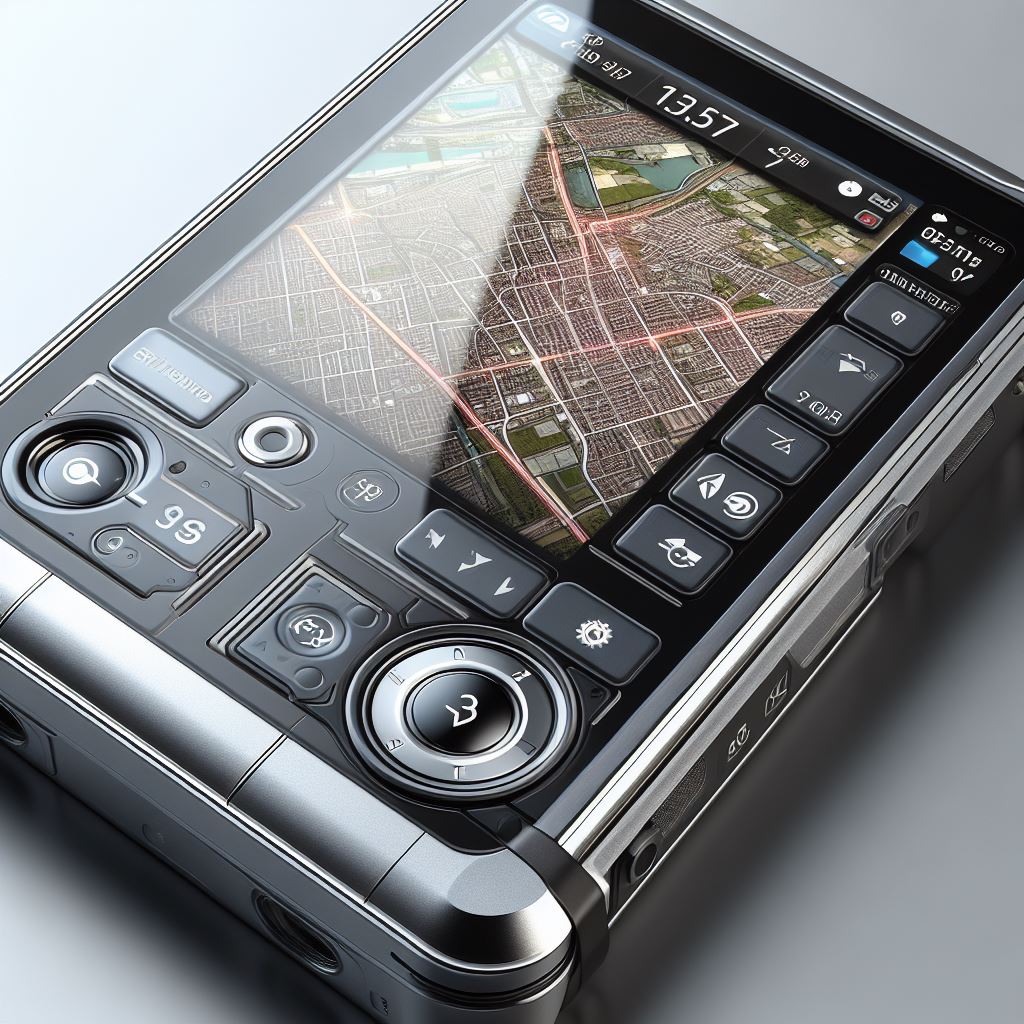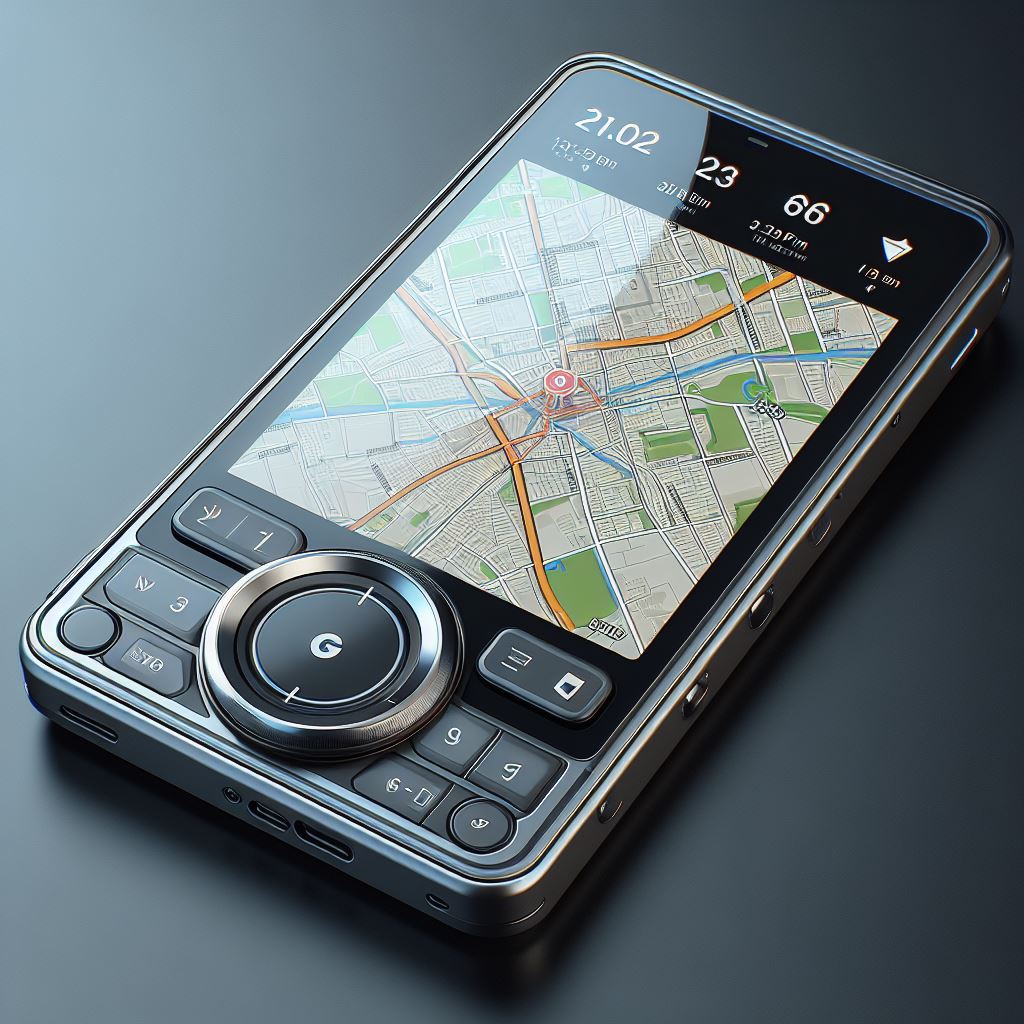The Role of MLCC in GPS Device

Global Positioning System (GPS) devices have become ubiquitous in modern life, providing accurate positioning and navigation services for a wide range of applications, from personal navigation to vehicle tracking and outdoor recreation. These devices rely on a complex system of satellites orbiting the Earth, constantly transmitting signals that are received and processed by GPS receivers on the ground.
One crucial component that plays a significant role in the performance and reliability of GPS devices is the Multilayer Ceramic Capacitor (MLCC). MLCCs are electronic components that store and release electrical energy, serving essential functions in filtering, decoupling, and smoothing electrical signals within GPS devices.
In this blog, we will explore the importance of MLCCs in GPS devices, discussing their specific applications, requirements, and benefits. We will also delve into the challenges faced in selecting and designing with MLCCs for GPS devices, as well as emerging trends and future prospects for MLCC technology in GPS applications.

Importance of MLCCs in GPS Devices
MLCCs play a crucial role in ensuring the proper functioning and performance of GPS devices. These devices rely on a stable power supply and precise timing to accurately receive and process signals from GPS satellites. MLCCs help achieve this by providing capacitance for decoupling and filtering, which are essential for maintaining a clean and stable power supply to the device’s components.
Decoupling Capacitors: MLCCs act as decoupling capacitors, absorbing and filtering out high-frequency noise and voltage fluctuations from the power supply. This helps prevent these disturbances from affecting sensitive components, such as the GPS receiver, ensuring reliable operation.
Filtering Capacitors: MLCCs also serve as filtering capacitors, smoothing out voltage ripples and ensuring a steady supply of power to the GPS device. This is crucial for maintaining the accuracy of the device’s internal clock and timing circuits, which are essential for calculating position and navigation information.
Size and Reliability: Due to their small size and high reliability, MLCCs are well-suited for use in GPS devices, where space is often limited, and reliability is paramount. Their compact size allows for the integration of multiple capacitors in a small footprint, saving valuable space in the device’s design.
Temperature Stability: GPS devices are often used in harsh environments where temperature variations can affect component performance. MLCCs are known for their temperature stability, ensuring consistent performance across a wide range of operating temperatures.
MLCC Specifications for GPS Devices
When selecting MLCCs for GPS devices, several specifications must be considered to ensure compatibility and optimal performance. Here are some key specifications to keep in mind:
Capacitance: The capacitance rating of the MLCC should be selected based on the specific filtering and decoupling requirements of the GPS device. Capacitance values typically range from picofarads (pF) to microfarads (μF), with higher capacitance values providing better filtering and decoupling performance.
Voltage Rating: The voltage rating of the MLCC should be chosen to withstand the maximum voltage levels present in the GPS device’s circuitry. It is advisable to select a voltage rating higher than the maximum voltage expected in the circuit to ensure reliability and safety.
Temperature Coefficient: The temperature coefficient of the MLCC indicates how its capacitance changes with temperature. For GPS devices used in a wide range of temperatures, it is essential to select MLCCs with a temperature coefficient that minimizes capacitance variations across the operating temperature range.
Size and Package: The size and package of the MLCC should be chosen to fit the space constraints of the GPS device’s design. MLCCs are available in various sizes and package types, such as surface mount technology (SMT) and through-hole technology (THT), allowing for flexibility in design.
Dielectric Material: The dielectric material used in the MLCC can affect its performance and reliability. Common dielectric materials used in MLCCs include X7R, X5R, and C0G, each with its own characteristics in terms of temperature stability, capacitance change over time, and voltage dependency.
Frequency Response: The frequency response of the MLCC should match the frequency requirements of the GPS device’s circuitry. MLCCs with higher frequency responses are suitable for filtering high-frequency noise and interference common in GPS applications.
By considering these specifications, designers can select MLCCs that meet the specific requirements of GPS devices, ensuring reliable and efficient operation in various conditions.
Challenges in MLCC Selection for GPS Devices
Selecting the right MLCCs for GPS devices can be challenging due to several factors that must be taken into consideration. Here are some common challenges faced by designers:
Size Constraints: GPS devices, especially those used in mobile applications, often have strict size constraints. Finding MLCCs that meet the required capacitance and voltage ratings while fitting into the limited space available can be a challenge.
Reliability Considerations: GPS devices are often used in harsh environments where temperature fluctuations, vibrations, and moisture can affect component reliability. Selecting MLCCs that are rated for high reliability and have a long lifespan is crucial.
Temperature Stability: GPS devices may be used in extreme temperature environments, which can affect the performance of MLCCs. Ensuring that the selected MLCCs have a stable capacitance over the entire operating temperature range of the device is essential for reliable operation.
Frequency Response: GPS devices operate at specific frequencies and require MLCCs with a frequency response that matches these requirements. Selecting MLCCs with the appropriate frequency response can be challenging, especially for devices that operate at multiple frequencies.
Availability and Lead Times: MLCCs are often subject to supply chain constraints, with certain capacitance and voltage ratings experiencing longer lead times or availability issues. Ensuring a stable supply of MLCCs for GPS device production can be a challenge.
Cost Considerations: While MLCCs are relatively inexpensive components, selecting high-quality, reliable MLCCs that meet the requirements of GPS devices without exceeding budget constraints can be challenging.
By addressing these challenges and working closely with component suppliers, designers can select MLCCs that meet the specific requirements of GPS devices, ensuring reliable and efficient operation in various conditions.
Benefits of Using MLCCs in GPS Devices
MLCCs offer several key benefits that make them ideal for use in GPS devices. Here are some of the main advantages:
Size and Weight: MLCCs are compact and lightweight, making them ideal for use in small, portable GPS devices. Their small size allows for high capacitance values in a small footprint, saving valuable space in the device’s design.
High Capacitance Density: MLCCs offer high capacitance density compared to other types of capacitors, allowing for the use of fewer components in GPS device designs. This can simplify the design and reduce manufacturing costs.
Low ESR and ESL: MLCCs have low Equivalent Series Resistance (ESR) and Equivalent Series Inductance (ESL), which allows them to effectively filter out noise and provide stable power supply to the GPS device’s components. This is essential for ensuring reliable operation, especially in noisy environments.
Temperature Stability: MLCCs offer excellent temperature stability, maintaining their capacitance values over a wide temperature range. This makes them ideal for use in GPS devices that may be exposed to extreme temperatures.
Reliability and Longevity: MLCCs are known for their high reliability and long lifespan, making them a dependable choice for GPS devices that require long-term operation.
Cost-Effectiveness: Despite their high performance and reliability, MLCCs are relatively inexpensive compared to other types of capacitors, making them a cost-effective choice for GPS device manufacturers.
Wide Range of Capacitance and Voltage Ratings: MLCCs are available in a wide range of capacitance and voltage ratings, allowing designers to select components that meet the specific requirements of their GPS devices.
Overall, the use of MLCCs in GPS devices offers numerous benefits, including compact size, high performance, reliability, and cost-effectiveness, making them an ideal choice for GPS device manufacturers.

MLCC Reliability and Longevity in GPS Devices
Reliability and longevity are critical factors in the design and performance of GPS devices, especially those used in mission-critical applications. MLCCs play a crucial role in ensuring the reliability and longevity of these devices. Here’s how:
Stable Performance Over Time: MLCCs are known for their stable performance over time, maintaining their capacitance and other electrical characteristics throughout their lifespan. This is essential for ensuring the continued accuracy and reliability of GPS devices.
Resistance to Environmental Factors: GPS devices are often used in harsh environments where they may be exposed to temperature fluctuations, moisture, and vibrations. MLCCs are designed to withstand these environmental factors, ensuring reliable operation in challenging conditions.
Low Failure Rate: MLCCs have a low failure rate compared to other types of capacitors, making them a reliable choice for GPS device manufacturers. This low failure rate helps reduce the risk of component failure and costly repairs or replacements.
Long Lifespan: MLCCs have a long lifespan, typically exceeding the lifespan of the GPS devices in which they are used. This ensures that the MLCCs will not need to be replaced during the device’s operational lifetime, reducing maintenance costs and downtime.
Quality Assurance: MLCC manufacturers often adhere to strict quality control standards to ensure the reliability and longevity of their products. This includes rigorous testing procedures to identify and eliminate any defective components before they are used in GPS devices.
In summary, MLCCs are a reliable and long-lasting component choice for GPS devices, offering stable performance over time, resistance to environmental factors, and a low failure rate. By selecting high-quality MLCCs and adhering to best practices in component selection and design, GPS device manufacturers can ensure the reliability and longevity of their products.
Tips for Designing with MLCCs in GPS Devices
Designing GPS devices with MLCC requires careful consideration of several factors to ensure optimal performance and reliability. Here are some tips to keep in mind:
Capacitance Selection: Choose MLCCs with the appropriate capacitance values to meet the filtering and decoupling requirements of your GPS device. Consider factors such as signal frequency, power supply stability, and noise reduction.
Voltage Rating: Select MLCCs with voltage ratings that exceed the maximum voltage expected in your GPS device’s circuit. This helps ensure reliability and safety under varying operating conditions.
Temperature Stability: Use MLCCs with temperature-stable dielectric materials to maintain consistent performance across the operating temperature range of your GPS device. This is crucial for reliable operation in diverse environmental conditions.
ESR and ESL Considerations: Minimize Equivalent Series Resistance (ESR) and Equivalent Series Inductance (ESL) by selecting MLCCs with low ESR and ESL values. This helps improve filtering and decoupling performance in your GPS device.
Layout and Placement: Place MLCCs as close to the components they are filtering or decoupling as possible to minimize parasitic effects. Follow best practices for PCB layout to reduce noise and interference.
Avoiding Ceramic Capacitor Cracking: Be mindful of mechanical stress during assembly and operation to avoid cracking MLCCs, which can lead to performance issues. Use proper mounting techniques and consider environmental factors that may impact ceramic components.
Consider Environmental Factors: Choose MLCCs that are suitable for the environmental conditions in which your GPS device will operate. Consider factors such as temperature, humidity, and vibration resistance.
Testing and Validation: Perform thorough testing and validation of your GPS device’s design, including MLCCs, to ensure proper functionality and reliability under various operating conditions.
By following these tips, you can design GPS devices that leverage the benefits of MLCCs for optimal performance and reliability.
